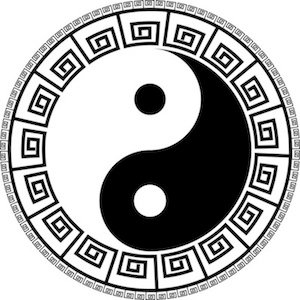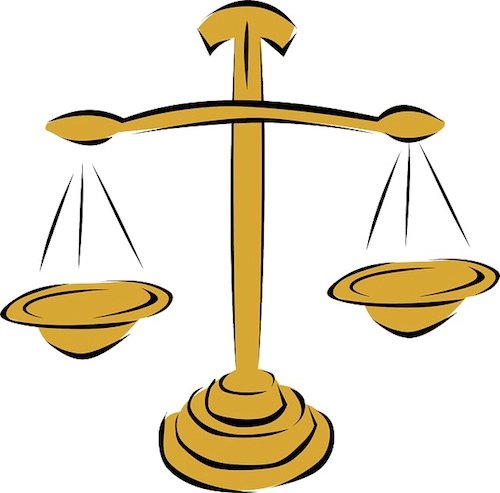Ethics of Deception: media, image, and magic

You could read a hundred books on "How to Ride a Unicycle" and learn nothing about balance
Last week I warned you of the danger of deception in media. It has a powerful influence on our lives.
I said I wouldn't try to argue or convince you of anything and I didn't, which helped make what I had to say more convincing. It was honestly unintentional and I'm sorry that you believed a word I said. NO, no, I never lied, everything I said was true, but this time I promise not to try to convince you and not to try to not convince you of anything . . .
Look! The primary goal is honest, precise communication--something lacking in news media.
It's very easy to say "they are deceiving us," or "mainstream media is fake news." I think everyone knows it's not so simple.
I will now shout my bias
Most news articles, either independent or corporate, have implied bias, and the author structures the article in a way that is persuasive. Like I'm doing right now. This may be intentional, or a natural tendency. In my case, it's both. The article's subject could be simple or complex, but regardless, after reading two thousand or so words, I think I understand. Then I agree or disagree.

The understanding is intellectual though, a conceptual image built from words. It may be an accurate representation of reality but still just a representation.
It is this conceptual image that people heatedly argue about on social media and in person. Reading an article is not enough to understand a "hot button" topic. Words on a screen can't imbue wisdom like direct experience can.
But I'm getting ahead of myself with excitement. All this hot button talk.
All I ask is you take anything you read with a grain of salt, especially with news of serious situations. You will come to conclusions, form images in your mind about what you are about to read, but remember, they are only images in your mind.
Do news journalists have responsibility for the reactions of their audience? Does the deceiver have full responsibility for the deception? Is deception ever ethical?
These are questions. I don't know the answers. Let's dip our toes in anyway and we may discover something of value.
To do this, we'll look at a few examples of deception and I'll take you deeper into the history and philosophy of the art of magic.
A spectrum of fakeness
To persuade or convince involves deception. Certain pieces of information are withheld, others held in the spotlight, exaggerated, or distorted in some way. It's not necessarily easy or desirable to avoid doing this.
Deception is not black and white. Normally people would agree, to convince your Aunt she really does look beautiful in that new hat is even the right thing to do. When thinking about deception, people often think of scammers, con artists, and charlatans. They forget that deception is part of daily life.
We are naturally deceptive creatures. Fakeness is in our blood.
We dye our greying hair and wear contacts to "fake" being younger and healthier. Socially, we play games to win rapport and attract a mate.
"So although I think the goal of fighting the fakers is exceedingly worthwhile, I must insist it is valuable and important for us to acknowledge that as with so many things in life it doesn't split neatly into us and them." --Max Maven

Is deception ever ethical?
In the 1960s, Canadian sociologist Erving Goffman led a study of students doing mediocre work.[1] Half were given an accurate assessment of their situations. The other half were told they had grades a few points higher than what was true, say in the C+ range, and with a little effort they could earn a B. The group that was lied to showed the most improvement. Surely this deception is ethical, isn't it? Its benefits probably outweigh any negative consequences.
Bill Hemmer, CNN Morning News anchor in the late 90s, wore horn-rimmed glasses without prescription lenses. His eyes were fine. The glasses were a prop to convey that he was smarter than he would otherwise appear, making viewers more likely to believe him.[1]
Let's assume that CNN was a source with integrity, providing all the facts. Then would this have been an ethical deception?
What if a group of people hold beliefs that are divisive, hateful, or dangerously stupid? Does trying to persuade them to change their beliefs, to convince them of the truth qualify as ethical?
Perhaps some of the hated "globalists" think this way of you. In a democracy, if an issue is too complex for people with no "skin in the game" to understand, is corporate media justified in lying to gain support for government, or is it still the responsibility of news media to tell the truth?
Corporate media has been lying, and what has been the result? More and more people are finding this out and no longer trust corporate media. If children find out that they have been lied to, they are hurt and rebel. Maybe the parent was trying to help with a difficult situation, to convince a child to do the right thing. Still, when the truth comes out, the shit hits the fan. Sometimes the response of the parent is punishment, more control, and less freedom.
Government is not a caring parent, and citizens are not children. However, Hemmer and Goffman's actions don't define clear ethical boundaries. People are inherently deceptive and in some situations, deception has positive consequences.
Is this the best we can do though? Trying to control people, trick students or the population into behaving "better"?
Let's look to shamanism for more insight and find out if any boundaries are breached in the mystery arts.

The roots of modern magic[2]
The shamanic tradition is probably far older than modern religion. "Shaman" is a broad term used to describe healers from many different cultures around the world, like the Native American medicine men. Most scholars are correct in believing that there are no supernatural powers at work during a ceremonial display of wonders. Producing live snakes from bags, making clay figurines come to life, or vanishing pebbles from the hand are all effects easily replicated by any knowledgeable magician.
Everyone has had an unusual experience that they just cannot explain,[3] but just because a method can't be discovered doesn't mean the secret is supernatural. Such a thought is ludicrous to any practitioner of the magical arts.
But the conjuring of shamans is no mere trick. For hundreds of years shamans were misunderstood. They were considered no more than tricksters, praying on the superstitions of the group to gain power. There is no doubt unethical shamans exist, but in most cases the shaman plays an important role in a community as the healer, able to enter altered states, diviner of when and where to hunt, and a source of tremendous knowledge. It is undeniable, they are men and women of power.
If shamans use conjuring tricks to inspire wonder, heal with placebo (and effective herbal medicine), and help in the survival of the community, then are their deceptions ethical? Or is the only time deception is ethical when you explicitly tell people you are going to deceive them?
As a magician, letting people think you have supernatural powers can have positive and negative consequences. Certainly, magicians have a great responsibility to tread with care.
Modern magicians deal with this dilemma in their own way. Penn & Teller play it safe, always making sure you know you are being deceived. Eugene Burger uses magic to point beyond himself, redirecting the awe he inspires toward life. Max Maven, well, he deserves a post of his own, in a good way.
David Blaine just doesn't address the question. Whether he has magical powers or is deceiving you is left to the audience to decide. This style can be so powerful that people might start asking, "Are you really magic?" Simply saying "no" ruins the experience. Saying "yes" can lead to religious worship.
Magic and faith
Stunning people to think "I have supernatural powers and you don't," intentionally, for personal gain, is ethically questionable. However, there is no question, that it is not OK to encourage in any way the forfeit of reason for faith. This can lead to lots of pain and possibly injury of self or others.
It's easy to understand why magic is feared and hated in our culture. All you have to do is have one conversation with a fundamentalist to see the danger of belief. Scientific evidence and reason are dismissed on the basis of an image in the mind. Magic is seen as faith, in opposition to science. This perception is a result of ignorance of magic's roots. And bad magicians.
A bad performance style speaks, "I can do things you can't because I have magical powers you don't have and the powers are definitely supernatural." It could be a mistake to imply such things, most beginners fall into this trap. But to make these claims seriously is ridiculous and degrading to the art. I'm looking at you, Chris Angel.
Fortunately, most good magic is not televised. More so than music, you have to see it live!
Often there are no clear ethical boundaries, but if you deceive people to exploit them for furthering an agenda and it affects peoples lives, you are responsible.
Corporate media does this daily, and despite what the scientists may think, the secret to being immune to deception, and therefore manipulation, lies in the magical experience.

The magical experience
"Art is a lie that tells the truth." -Picasso
The magical experience, clearly defined:
The magical experience is NOT the experience of confusion. On the contrary, "the structure of most deceptive magical performances goes something like this: the audience believes, 'Yes, that was fair--yes, that's fair--and, yes, that's fair. Wow! That was astonishing!'" --Eugene Burger[2]
Deceptive effects can be described simply in one sentence like, "The signed card keeps coming to the top of the deck," or "Russia is a threat."
The magical experience is NOT the experience of a puzzle. A magic effect doesn't need to be solved. "It can be viewed, instead, as something to be experienced for its sheer wonder and amazement." --Eugene Burger[2]
Whether the audience is in a skeptical, puzzle-solving, debunking frame of mind, or they have given in to pure enjoyment, is a result of the performer's technique and style.
The magical experience IS the experience of surprise, the unexpected, the impossible, the non-rational, and the mysterious. These experiences are very real and healthy too.
Magic is not faith. Magic is ironic and paradoxical like life. Magic is not about ignoring reason, but quite the opposite. It is not a rejection of the analytical process or of science, but a reminder that our senses and logic are easily fallible.
The ethical magician convinces and persuades, constructs images in your mind. These beliefs are confused with reality. Then before you can hold them too close, they are shattered in a single preposterous moment. The reaction felt is cognitive dissonance in a non-threatening atmosphere. People often experience increased heart-rate, flushed cheeks, joy, wonder, laughter, sometimes they just run screaming. My favourite is the silent, slack-jawed stare.
When you witness something deeply mysterious, the secret must be wonderful and beyond what you can imagine. It evokes a sense of awe. Images weigh less on the mind and perception becomes clear.
All art can remind science of the primal fact. We hide the primal fact under images we ponder to escape its devastating beauty. The universe exists! We exist! The secret must be so wonderful and beyond what anyone can imagine.
But we do imagine. That's all corporate news does. Attachment to the imaginings prevents clear perception. Then the image conflicts with another image, which creates confusion and fear. When there are heated arguments, it implies people are confused and afraid. This reaction can be intentionally provoked but is all the power in the hands of news media?
Responsibility

If a piece of news creates the reaction of heated debate, skepticism, compassion, belief, disbelief, clarity, or confusion, it is largely a result of the "performance style" of the author. Responsibility for how an issue is reacted to is neglected by the most influential publications.
If news anchors worry about how glasses affect perception, you can bet deceptions run much deeper. Many more people know this now, thanks to recent shenanigans.
The good news is the spectator is not powerless. Goffman's study shows how deception can improve the performance of students but it also points to the incredible influence thought (conceptual images) have on us.
Believing that the performer, author, news presenter, bully, or scammer holds all responsibility for how an individual reacts to a situation, blindly gives away our power over how we think and feel.
Everyone gets pissed from time to time but the reality is, no one has ever offended you![4]
Did you know that sound from the vocal chords of another human (or the written word) is not the root cause of psychological distress? "You offended me," scientifically, is an inaccurate statement. More accurately you could say, "I am in the process of offending myself."
Similarly, no one has ever deceived you. All deception blossoms in the mind of the individual being deceived. Understanding the underlying structure of our psychology will lead to better health, and possibly immunity to manipulation.
Obviously, there's no excuse for bullies, scammers, or corporate media. They are responsible too, but trying to control undesirable behaviour doesn't work, and is not a compassionate response. Deception will always exist as long as people can be deceived.
If more independent media can learn to better report news in a way that brings clarity to an issue, that inspires people to have dialogue instead of assuming their knowledge is complete, it could have an impact. At the same time, if we realize the power we have over our lives, try to catch ourselves in the act of confusing image for fact, then the future will be bright indeed.
It is said that truth is always changing, and if that fact doesn’t change, then that means truth never changes. Unless at some point it stops changing, then it could only be said that “truth is not always changing.”

All images are from pixabay.com
[1] In Praise of Deception --Max Maven talk on youtube
[2] Magic and Meaning by Eugene Burger and Robert E. Neale
[3] "Everyone has had an unusual experience that they just cannot explain," is a linguistic deception taken verbatim from the Wonder Words audio series by renowned mentalist Kenton Knepper. The example makes use of what is called an "unspecified referential index." In Kenton's words, an unspecified referential index is a fancy term for "A phrase or a word where the noun being talked about just isn't very specific. It may sound specific but there's no clear reference to a specific person, or a place or a thing. The reason this idea is important is because if you're not very specific, and it sounds like you are, what people tend to do is hear that phrase, your audience, and think to themselves, 'well jee, how does that apply to me?' In other words they will search their own minds to find this broad, generalized statement and try to decide how that could be true in their lives."
[4] Feeling Good: The New Mood Therapy by Dr. David Burns
@skypal is grateful for the overwhelming response from his last post. He usually writes about things once a week. All payout goes towards funding his crypto-currency trading experiment.
Really good article, I wish I could up-vote it twice but there is no deceiving the block chain. ;)
Thanks. lol.
I concur!
following :) I've had those moments a few times , then I found out my vote doesn't even count :D , so lets double our power and solve the double voting issue :D
Thank you again. Typo near end in sentence beginning Obviously, unless it's a subtle piece of word magic.
The magic of a tired brain. Thanks.
hah great to see you doing great and continuing to amaze , I'm going back to your earlier posts and will take a look some time :) , so far reading so much is exhausting. I'm not writing and I'm not able to keep up with people :D let alone life outside this closed off ecosystem. Great content tho , once again amazing :)
Nice write, great topic and great coverage you've touched on many possible "markets" and your background shows :). Most of what you referred is unknown to me , but that's the beauty of it :)
Thanks for reading.
The price of STEEM is 0.162929 USD per STEEM
2017 is year of the Steemian in Chinese zodiac.